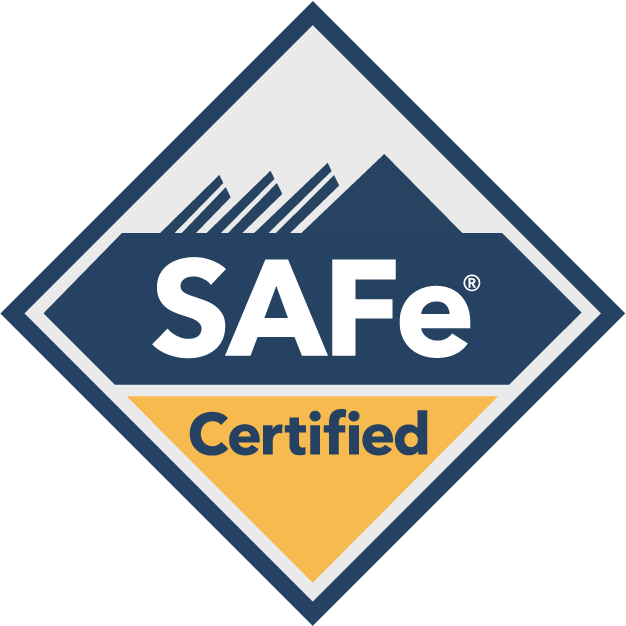Subscribe to the blog
Anyone who has taken the Scrum Master exam knows that it is not easy. It takes a lot of preparation and studying to pass this test. However, with the right tips and advice, you can be on your way to passing the exam with flying colors. In this blog post, we will outline some essential tips for success when taking the Scrum Master exam.
1. Study the Scrum Guide:
The Scrum guide is essential reading for anyone who wants to do well in the Scrum Master certification exam. This document contains all of the information that you need to know about Scrum, including its philosophy, values, and practices. By studying the guide thoroughly, you will be able to answer questions in the exam with confidence. Additionally, you will be better prepared to lead Scrum teams in the real world and help them achieve success. Whether you are new to Scrum or have been working with it for years, make sure that you take the time to study the Scrum guide carefully. It is the best way to ensure that you will be prepared for success on the exam and in your career as a Scrum Master.
2. Take a Scrum Master Course:
Taking a course will provide you with an in-depth understanding of the concepts and processes involved in Scrum. It will also give you the opportunity to practice what you’ve learned in a real-world setting. The Scrum Master Certification course is designed to teach you the basics of scrum, as well as how to effectively manage and coach a scrum team. You will learn about the different roles within a scrum team, as well as how to create and maintain a productive environment.
3. Know the definition of each term in the Scrum Glossary:
There will be questions in the exam that require you to recall the precise definitions of key terms like "Sprint", "Product Backlog" and so on. If you can't remember the definitions by heart, make sure you at least know where to find them quickly in the Scrum Guide.
4. Understand what each role in Scrum is responsible for:
The vast majority of questions on the exam will be related to how the different roles in Scrum interact with each other. Make sure you know what each role is responsible for and how they contribute to the success of a Sprint.
5. Be familiar with the Scrum events and their purpose:
Again, many questions on the exam will require you to demonstrate your understanding of when and why the different Scrum events are used. You should be able to explain the purpose of each event, as well as when it should take place in relation to other events.
6. Know the difference between a Sprint and a Release:
Scrum is a framework for developing and delivering products in an iterative and incremental way. A Scrum Sprint is a time-boxed period of development, usually two weeks long, during which a Scrum team works to complete a set of predetermined objectives. Scrum Sprints are typically followed by a brief period of review and release, during which the team assesses their progress and celebrates their accomplishments. The Scrum exam will test your knowledge of these two key concepts. In order to pass the exam, you must be able to explain the difference between a Scrum Sprint and a Scrum Release.
7. Know the order in which a Sprint normally proceeds:
The exam will often test your knowledge of the correct order in which activities should be carried out during a Sprint. Make sure you know the sequence of events from Sprint Planning through to Sprint Retrospective and be able to explain why each activity is important.
8. Be able to identify and explain common problems that can occur during a Sprint:
The examiners will often ask you to describe how you would deal with a particular problem that might occur during a Sprint. It is therefore important that you are familiar with the most common issues that can arise, such as scope creep, team conflict and so on.
9. Understand Product Backlog and its use in Scrum:
One of the areas you will be tested on is the Product Backlog. The Product Backlog is a prioritized list of all the work that needs to be done in order to develop a product. It includes features, bug fixes, and other tasks that need to be completed. The Product Backlog is maintained by the Scrum team and is used to plan sprints and track progress. In order to pass the Scrum exam, you should be able to explain what a Product Backlog is and how it is used in Scrum.
10. Sprint Retrospective:
The Scrum exam includes a section on the Sprint Retrospective. This is an important part of Scrum, as it helps to improve the process. The Sprint Retrospective is a meeting that is held at the end of each Sprint. It is used to discuss what went well during the Sprint, and what could be improved. This helps to ensure that the Scrum process is constantly improving. Without the Sprint Retrospective, it would be difficult to identify areas where Scrum could be improved. As a result, the Sprint Retrospective is an essential part of Scrum.
11. Take Practice Exams:
When you're studying for a Scrum exam, it's important to get a feel for the material before you take the actual test. The best way to do this is to take practice exams so that you can see what types of questions are asked and get a sense of how much you know. Additionally, taking practice exams can help you to identify any areas where you need further study. If you find that you're struggling with a particular concept, spend some extra time reviewing that material before you take the real exam. By taking practice exams, you'll be better prepared and more confident when it comes time to take the Scrum exam for real.
So, there you have it! Our top tips for passing the Scrum Master exam. We hope that this information has been helpful and will allow you to be successful on your journey to becoming a Certified Scrum Master. If you're looking for a comprehensive and interactive way to learn scrum, our certification training may be perfect for you. Our trainers are experienced professionals who will help you understand the scrum methodology inside and out so that you can start using it in your own projects right away. Contact us today to find out more about our courses and see how we can help you become a scrum master!




